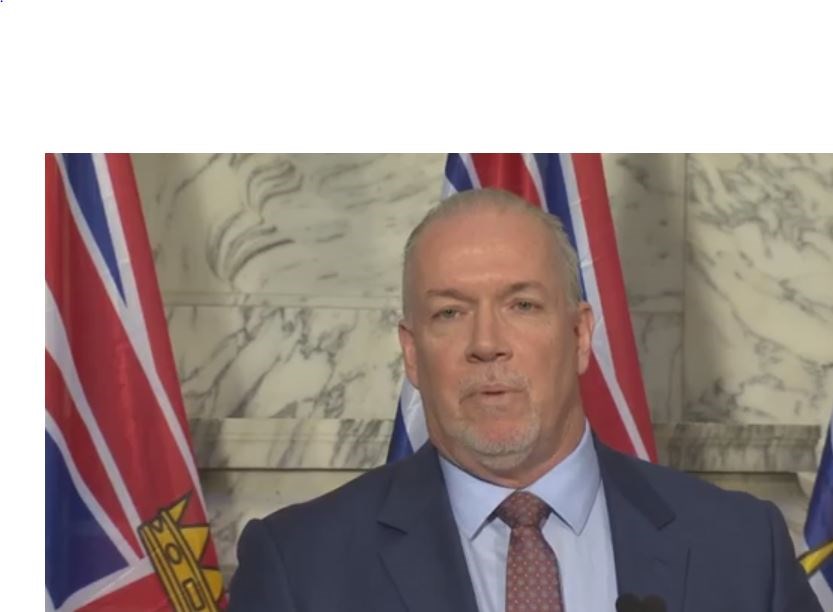All that environmental and Indigenous-rights consciousness that the NDP had to quell when it decided to proceed with the Site C power project might spill out elsewhere now that the deed is done.
The decision was perfectly defensible economically. No one ever defined exactly where the project’s point of no return was. But it seems clear B.C. was past it by the time the B.C. Utilities Commission laid out the ramifications of terminating or carrying on. The numbers associated with shutting it down simply didn’t work.
That’s only partly why Premier John Horgan and two cabinet ministers looked so remarkably morose when he announced the project would carry on. It was also because they knew most of the denunciations would be from their own side.
The rest of B.C. is engaged to varying degrees about the Peace River dam, but it has consistently been a rallying point within the NDP. Horgan said Tuesday he joined the party in 1983, and opposing Site C even back then was “almost a tenet of membership.” So while he guaranteed beforehand that some would be unhappy no matter what call he made, he knew the hard part would be in deciding to let down his own people.
The construction site isn’t the only place that’s having trouble with “tension cracks.”
The NDP is inordinately proud of its commitment to environmental causes and to standing with First Nations wherever possible. And the NDP government is acutely aware of how betrayed people in both those camps feel. So a sustained demonstration that their hearts are still in the right place seems to be in order.
The most obvious area for the big makeup effort will be Kinder Morgan’s bitumen pipeline from Alberta to Burnaby. The NDP has been condemning it for years, and has been plotting since it took power to find a way to undo all the approvals the project has received. Now the NDP cabinet ministers have a new spur to redouble their efforts against the line — their own guilty consciences.
The day after making the Site C call, Horgan said: “My views remain constant. A seven-fold increase in tanker traffic … is not in our interests. I made that clear to [Prime Minister] Justin Trudeau just two weeks ago. We’re holding fast to that position and we’re going to continue to fight with every tool available to us to protect our marine environment. People of B.C. on balance believe this project is not in our interests and I’m going to hold fast to that.”
In his first month in office, he retained eminent native-rights jurist Tom Berger to advise on how to conduct the belated guerrilla campaign against the shovel-ready project. Look for more signs of Berger’s influence in the days ahead.
There isn’t much room to make up with two aggrieved First Nations that oppose the dam, the West Moberly and Prophet River bands. They’re furious and off to court to fight the decision on the grounds it infringes on treaty rights.
Union of B.C. Indian Chiefs leader Stewart Phillip was similarly outraged, saying the decision has done irreparable harm to the NDP brand in B.C. Phillip is — or was — a longtime NDP supporter. He endorsed Horgan during the election campaign, appeared at a rally with him and was instrumental in organizing an “Anyone but Clark” movement.
There are some bands with benefits agreements related to the dam, but they’ll be outshouted by the holdouts who are energized to oppose it even more.
Horgan tried to head off that backlash during the announcement: “I’m not the first person to stand before you and disappoint Indigenous people. But I’m the first, I think, that’s stood before you to say I’m going to do my level best to make amends for a whole host of decisions that previous governments have made that put Indigenous people in an unwinnable situation.”
That could include a clearer delineation of his commitment to the UN declaration on Indigenous rights for “free, prior and informed consent” of Indigenous peoples before government makes any moves that affect them. It will probably work in favour of First Nations, because the NDP has a lot of making up to do.



